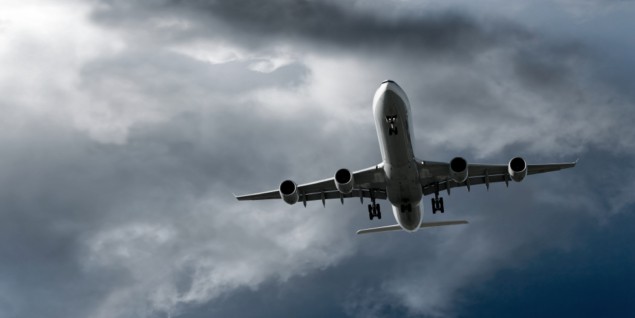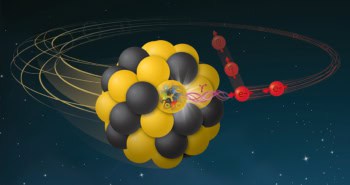
Flying to ever-more far-flung scientific meetings and locations does not make you a more productive scientist with better citations on your papers. That is the claim of a study that examines the relationship between air-travel emissions and various measures of academic success. Carried out by researchers at the University of British Columbia (UBC), in Canada, the study suggests that academics can therefore take steps to reduce flying without fear that it will impact their academic output.
Scientists travel for many reasons such as carrying out experiments, attending conferences, giving lectures as well as visiting colleagues — all of which are considered important for academic success. But researchers are increasingly questioning the value of such travel. “Academics tend to fly quite a lot and we are living in a carbon constrained world,” says UBC researcher Seth Wynes. “There is a limited amount of carbon we can put into the atmosphere if we want to stay within a safe temperature for our planet, so it is really important we reduce how much we fly.”
To measure the impact of frequent flying on academic success, Wynes and colleagues looked at the travel of 700 academics from eight UBC departments over an 18-month period. The data came from travel-request forms that provided the team with details such as trip duration, airport codes, number of flights in a trip, ticket class and reason for travel. This information also allowed the researchers to estimate the greenhouse gas emissions for each trip.
Most travel was to attend conferences (60%), with the rest classified as being fieldwork (16%), miscellaneous and unreported purposes (13%), university business (6%) and lectures (5%). The team classed 5–10% of the air travel as avoidable – such as a same-day return, a one-night long-haul trip or a short trip that could have used other modes of transport. And up to a quarter of journeys were considered to have produced avoidable emissions, either because the air travel itself was avoidable or that academics sat in a class higher than economy (Journal of Cleaner Production 226 959).
A cultural shift
When the researchers compared the academic performance of 128 academics — for whom the necessary data was available — with their work-related air-travel emissions, they found no relationship between emissions and the author’s “h-index” – a measure of a researcher’s productivity and impact of their publications. No connection was found even when the h-index was adjusted for academic age and discipline. There was also no correlation between air travel and the average number of authors on a paper – usually taken to be a sign of collaboration. Physicists who move abroad can receive a 17% uplift in citations, study reveals
There was, however, a difference when the h-index was adjusted for academic age and discipline for full-time faculty that appeared to have not flown at all during the study period. “We found that researchers in our sample who didn’t fly at all had lower scholarly outputs than those who did fly, but among those who did fly – once you took at least one trip in our 18-month sample – then there was no relationship, doing five trips was not better than one,” says Wynes.
Wynes told Physics World that he doesn’t think the work shows that academics cannot attend conferences, but that there are a lot of trips that might be unnecessary. “It might be that we can get away with fewer trips – we can reduce our emissions – and still be successful,” he says. As well as a cultural shift among academics, Wynes says that institutions can also help to reduce flying by taking steps such as providing better video-conferencing equipment, software and facilities as well as changing promotion requirements to ensure they are not incentivising international trips. “A lot of institutions are already taking progressive action on this,” he adds. “It is very exciting to see.”



